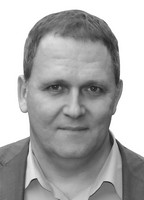Psychological consulting service to athletes in challenging life situations
Фотографии:
ˑ:
Teoriya i praktika fizicheskoy kultury №4 2017, pp.32-34
PhD, Associate Professor E.A. Polyakov1
Dr.Sc.Psych., Associate Professor P.A. Kislyakov1
PhD, Associate Professor L.V. Senkevich1
L.A. Bychkova1
1Russian State Social University, Moscow
Every initiative to improve the competitive success rates and secure persistent progress implies due psychological service being provided to the athletes facing a variety of sport-specific and life problems. The study was designed to find the psychological consulting service methods most efficient in application to athletes. It gives descriptions of four efficient psychological consulting service methods applicable to athletes exposed to stresses due to professionalization challenges in sports (by Occasional Fellow Traveller method), or post-traumatic stresses (by Structured Confession method), or facing sport-motivation related problems (by Rational Emotive Psychotherapy), or problems due to inadequate thinking and acting culture (by Life Skills Developing service). The article gives a few cases of practical consulting services, with a special emphasis on the benefits of the reported consulting tools in application to junior athletes and coaches (under 30 years of age) facing some life problems; with the service benefits being verified by the psychological/ psychosomatic state improvements; increased sport motivations; due understanding of the origins of the difficulties; and successful solutions of the problems faced in the sport-specific domain and other life situations. The practical methodologies outlined in the article may be helpful for the sport psychologists seeking, in cooperation with the coaches, to improve the competitive success rates and secure persistent progress of the young athletes.
Keywords: athletes, stress, trauma, motivation, thinking and acting culture, consulting services.
References
- Boyko I.I. Motivatsiya dostizheniya u podrostkov-sportsmenov i ee razvitie v protsesse provedeniya korrektsionno-treningovykh zanyatiy. Avtoref. dis. kand. psikh. nauk [Achievement motivation in adolescent athletes and its development at correction and training sessions. PhD Diss. abstr.]. Irkutsk, 2006, 24 p.
- Vardanyan Y.V., Vardanyan L.V. Kontseptualizatsiya predstavleniy o psikhologicheskoy bezopasnosti v sporte: problemy eksperimentalnogo issledovaniya [Psychological safety ideas concepts in sport: Problems of experimental study]. Sovremennye issledovaniya sotsialnykh problem, 2013, no. 8 (28). Available at: http://journal-s.org/index.php/sisp/article/download/8201311/pdf_404
- Gritsaenko M.V. Optimizatsiya sorevnovatelnoy emotsionalnoy ustoychivosti yunykh sportsmenov (na primere strelkovogo sporta). Avtoref. dis. kand. psikh. nauk [Optimization of emotional stability of competitive junior athletes (case study of shooting sport). PhD Diss. abstr.]. Moscow, 2002, 23 p.
- Kalandiya A.T. Nadezhnost sportsmena kak faktor uspeshnosti ego sportivnoy deyatelnosti. Avtoref. dis. kand. psikh. nauk [Athlete's reliability as a factor of success in sports activities. PhD Diss. abstr.]. Sochi, 2010, 22 p.
- Kislyakov P.A., Shmeleva E.A., Tolstov S.N. Obespechenie sotsialno-psihologicheskoy bezopasnosti sub'ektov obrazovaniya [Social and psychological safety provision for education subjects]. Voprosy psikhologii [Questions of Psychology], 2015, no. 5, pp. 46-55.
- Kuznetsov V.V. Psikhologicheskiy analiz proyavleniya sub'ektno-lichnostnykh svoystv sportsmenov kak pokazatelya uspeshnosti ikh deyatelnosti (na primere atleticheskikh vidov sporta i boevykh edinoborstv). Avtoref. dis. kand. psh nauk [Psychological analysis of display of atheletes' personal properties as performance success factor (case study of athletics and martial arts). PhD Diss. abstr.]. Kazan, 2004, 22 p.
- Nelson-Jones R. Teoriya i praktika konsultirovaniya [Theory and practice of counseling]. St. Petersburg: Piter publ., 2000, 464 p.
- Polyakov E.A. Riliv-terapiya kak novoe psikhoterapevticheskoe napravlenie v psikhologicheskom konsultirovanii [as new psychotherapeutic trend in psychological counseling]. Rossiyskiy nauchny zhurnal [Russian Research Journal], 2013, no. 3 (34), pp. 198-208.
- Polyakov E.A. Psikhoterapiya PTSR metodom riliv-terapii [Riliv therapy in psychotherapy for PTSD treatment]. Rossiyskiy nauchny zhurnal [Russian Research Journal], 2013, no. 4 (35), pp134-142.
- Senkevich L.V., Dontsov D.A. Psikhologicheskie osobennosti, sotsialno-psikhologicheskie zakonomernosti i spetsifika razvitiya lichnosti v yunosheskom vozraste [Psychological characteristics, socio-psychological patterns and specificity of personality development in adolescence]. Rossiyskiy nauchny zhurnal [Russian Research Journal], 2013, no. 1 (32), pp. 198-206.
- Tarabrina N.V. Praktikum po psikhologii posttravmaticheskogo stressa [Workshop on post-traumatic stress psychology]. St. Petersburg: Piter publ., 2001, 272 p.
- Shagiev R.M. Strukturno-funktsionalnye kharakteristiki stressoustoychivosti v sportivnoy deyatelnosti. Avtoref. dis. kand. psh nauk [Structural and functional characteristics of stress tolerance in sports activities. PhD Diss. abstr.]. Yaroslavl, 2009, 26 p.



 Журнал "THEORY AND PRACTICE
Журнал "THEORY AND PRACTICE